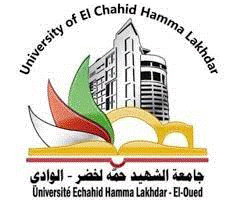
|
Faculty of Exact Sciences -Theme: Artificial Intelligence (AI) and its Applications in Physical, chemistry, mathematical and Computer Sciences
11-13 Dec 2023 Eloued (Algeria)
|
|
|
|
Chemistry WorkshopsChemistry: Artificial Intelligence (AI) and its Applications in Chemistry Sciences Workshop 1: Molecular Docking for Drug Discovery. By Pr. LANEZ Touhami, El-Oued University. Molecular Docking In the field of molecular modeling, it is a method that predicts the preferred direction of one of the two molecules relative to the other when they bond with each other to form a compound. Knowing the preferred direction may be used to predict the strength of coupling or the affinity of association between molecules using functions. Molecular docking is one of the most widely used methods in structure-based drug design (SBDD) due to its ability to predict the binding conformation of small molecule ligands with respect to the appropriate target binding site. The characterization of binding behavior plays an important role in rational drug design as well as in the illustration of basic biochemical processes. Workshop 2: Artificial Intelligence for Phytochemistry: Identifying Natural Products. By Pr. BEN CHIKHA Naima, El-Oued University. The development of artificial intelligence is necessary for improving future research in natural product sciences. The laboratories have incorporated complementary systems that use artificial intelligence and machine learning to process analysis data and predict structure. The tandem use of HPLC and mass spectrometry analysis has been integrated. As well as the application of more advanced NMR spectroscopy, such as automated systems, and their increased use will provide centralized data storage allowing for more rapid and efficient data processing and human review. Workshop 3: Artificial Intelligence for materials synthesis and Characterization. By Pr. BEN MAYA Ammar, El-Oued University. The chemists integrate expertise in material composition, characterization, and theoretical simulation methods with machine learning to more explore the design space. Artificial intelligence enables us to extrapolate and predict unexplored compounds where current data are limited by combining these models with high-throughput synthesis and characterization tools, we can rapidly identify new compositions and materials of interest for applications. Workshop 4: Artificial Intelligence and Machine Learning in Analytical Chemistry. By Pr. ZENKHRI Louiza, Ouargla University. Machine learning and artificial intelligence are increasingly gaining prominence through image analysis and machine processing. Machine learning is transforming chemistry profoundly, from revisiting decades-old analytical techniques for the purpose of creating better calibration curves to aiding and accelerating conventional simulations and using them as approaches to conclude the chemical properties. |

